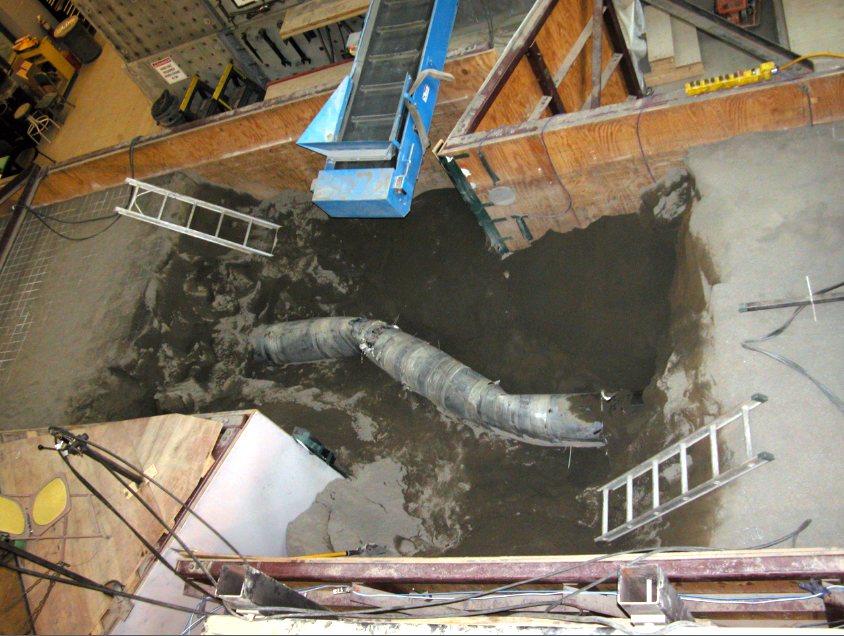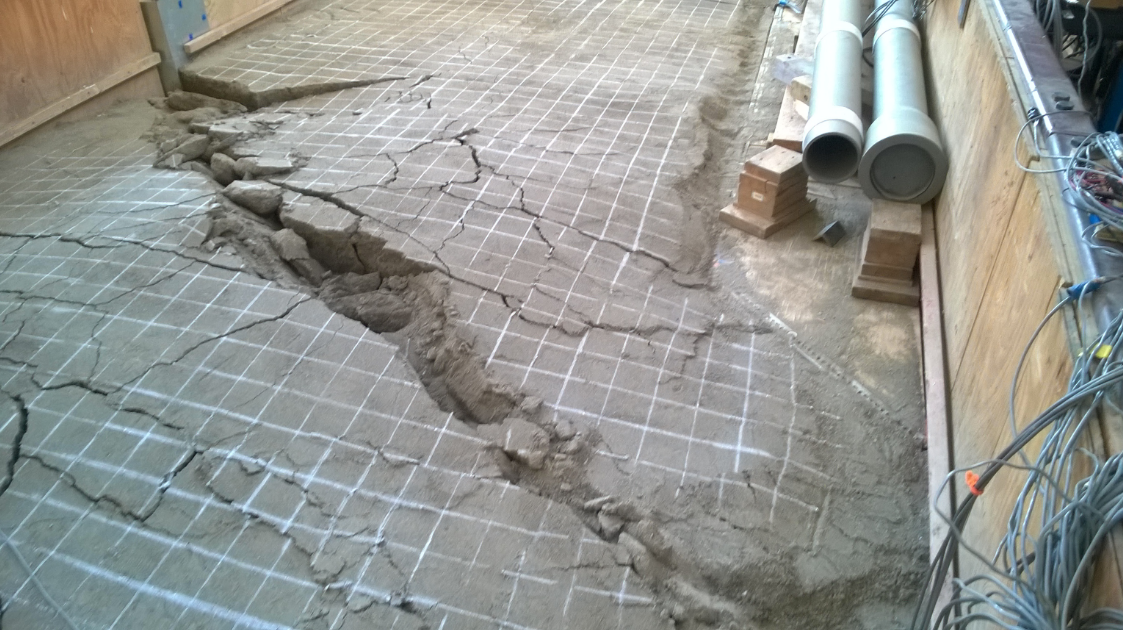Connecting state and local government leaders
“We took the pipe to three times its current design standard, and it continued to convey water,” according to a Cornell University researcher.
LOS ANGELES — When the next large earthquake hits Southern California, or any other major U.S. city, among the biggest worries for emergency managers and intergovernmental leaders is whether infrastructure for water and sewage will be able to ride out intense levels of shaking and ground deformation.
In the greater Los Angeles area, these worries aren’t just limited to water pipes under the streets, but also the aqueducts that carry water across the San Andreas Fault —the boundary between the Pacific and North American tectonic plates—and through other seismically vulnerable areas.
The 7,000 miles of water-delivery infrastructure in Los Angeles, the nation’s second-largest city, crosses 30 different fault lines and the task to repair—or in some cases, completely rebuild—pipelines and water mains following a major quake will be immense. And the same goes for the pipes that carry away wastewater for processing.
Getting water to millions of people in Southern California following the next catastrophic quake is an unpleasant emergency management scenario to think about as are the strategies needed to deal with raw sewage if it takes months—or years—to repair damaged infrastructure and restore service. (The region got a reminder of that risk recently when around 2.5 million gallons of raw sewage spilled into the Los Angeles River after a pipe ruptured near downtown, shutting down beaches in Long Beach and Orange County.)
But there’s some hope when it comes pipe infrastructure and earthquakes coming from a place that’s not very seismically active: Ithaca, New York.
Recent testing at Cornell University’s Geotechnical Lifelines Large-Scale Testing Facility simulated the impacts of an earthquake along a 28-foot-section of steel pipe designed to be quake-resistant and equipped with more than 120 monitoring instruments. To mimic a seismic event, the pipe was buried under 80 tons of soil with a hydraulically powered “split box” imposing 2 feet of fault rupture on a 50 degree angle.
The tests “surpassed expectations,” Tom O’Rourke, professor of civil and environmental engineering at Cornell University and the project’s principal investigator, said according to Cornell’s announcement about the testing, excavation and data collection, conducted July 20-22.
“The pipe was able to accommodate the 2 feet and didn’t spring a leak,” said Brad Wham, a geotechnical engineering postdoctoral student from Cornell who designed the test. “We took the pipe to three times its current design standard, and it continued to convey water. So we consider it a successful test and very promising technology.”

While the design of test pipe was 8 inches in diameter, it could be scaled up to 70 inches in diameter.
What makes this type of pipe resistant to seismic shaking and ground deformation?
According to Cornell:
The steel pipe, developed by JFE Holdings in Japan, uses a unique structural wave design to control buckling, allowing the pipe to bend and compress without rupturing or losing water pressure. The wave features are installed at key locations along the pipeline to absorb large ground deformation, such as movements imposed by earthquakes and landslides or from undermining associated with scour during hurricanes and floods. The extent of its performance was unknown until it arrived at Cornell.
The resilience program manager at the L.A. Department of Water and Power, Craig Davis, was on hand for the tests at Cornell, according to the university.

L.A. Mayor Eric Garcetti has made earthquake resiliency a top priority for his administration. In December 2014, Garcetti released the city’s Resilience by Design strategy , which focused on select seismic vulnerabilities, including pre-1980s “non-ductile reinforced concrete” buildings, pre-1980s “soft first-story” buildings, telecommunications infrastructure and water infrastructure.
In May 2015, the city passed rules mandating cellphone tower infrastructure designed to withstand strong shaking , the first jurisdiction to require such quake-resistant telecommunications infrastructure.
October 2015, Garcetti signed an ordinance mandating seismic retrofits for the vulnerable pre-1980 buildings.
As the Los Angeles Times reported in March 2015, upgrading the city’s quake-vulnerable infrastructure could cost somewhere in the range of $15 billion , depending on whether the system undergoes comprehensive upgrades or targeted fixes for the most at-risk pipes.
As the Times pointed out at the time, the L.A. Department of Water and Power is a self-funding agency and restricted in the ways it can raise revenue. So, just like in other cities upgrading aging water and sewer infrastructure to meet stronger federal environmental standards , L.A. water ratepayers are potentially staring down years of higher costs.
But when it comes to the risks from the next large earthquake in Southern California, the region faces difficult—and expensive—choices when it comes to protecting the infrastructure that delivers the water that’s so critical to L.A.’s future.
RELATED on Route Fifty: “ Puente Hills Quake Could Be Far More Destructive to L.A. Than the ‘Big One’ ”
Michael Grass is Executive Editor of Government Executive’s Route Fifty and is based in Seattle.

NEXT STORY: 1st Likely Cases of Zika Transmitted by Mosquitoes on U.S. Mainland in Florida




